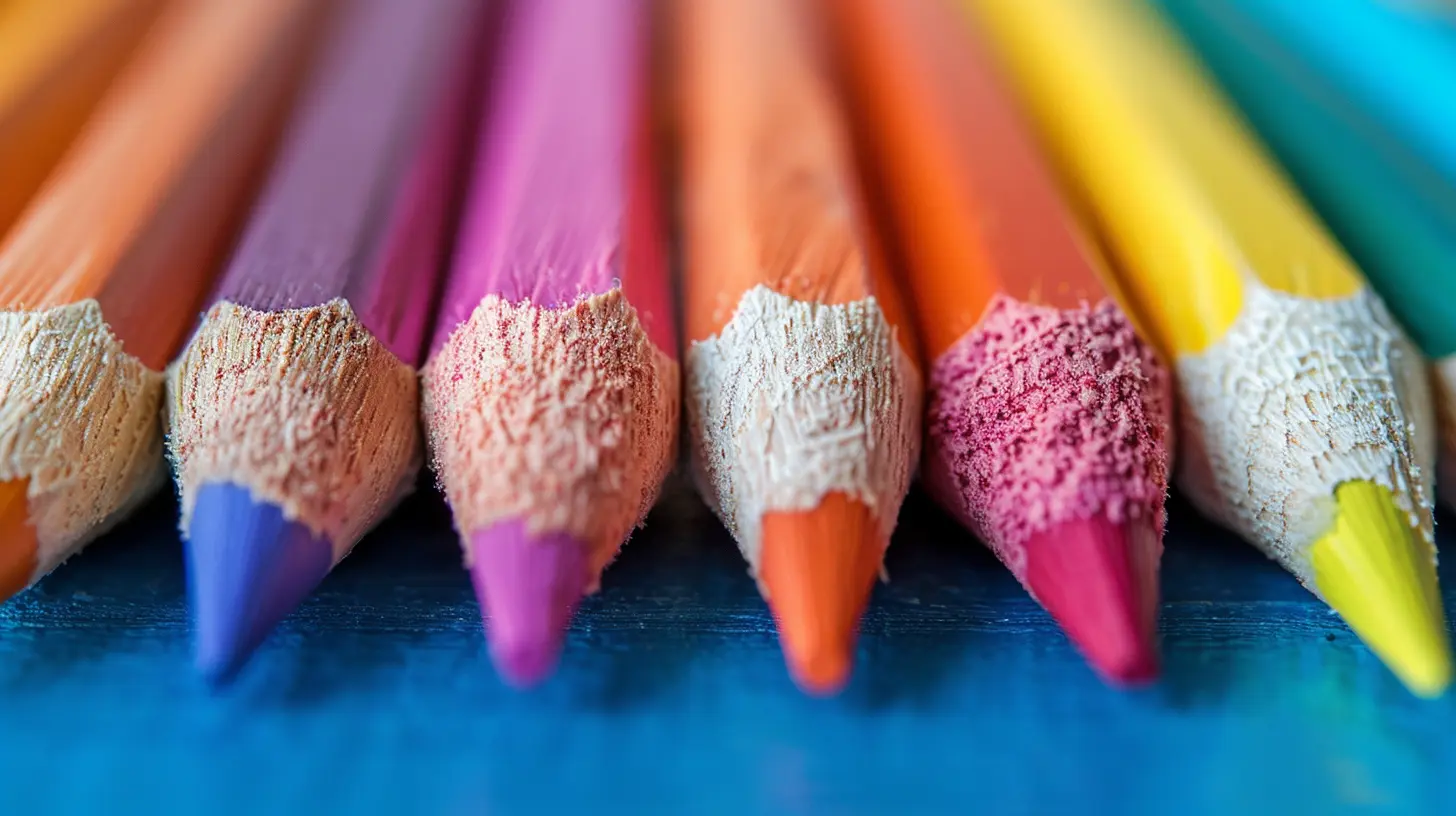How to Incorporate Self-Assessment into Your Daily Learning Routine
5 October 2025
Let’s be honest—we all want to get better at stuff, whether it’s mastering a new language, acing our exams, or just understanding life a little more clearly. But here's the catch: we often rely too much on others to tell us how we're doing. What if I told you that you could be your own teacher, coach, and biggest cheerleader—all rolled into one?
Self-assessment is one of those underrated superpowers that can completely transform the way you learn. And the best part? You don’t need a fancy app, a perfect schedule, or even a new notebook. You just need a willingness to pause, reflect, and—let’s face it—be a little honest with yourself.
In this post, we’ll chat about how to weave self-assessment into your everyday learning routine. It’s not about adding more to your plate—it’s about being smarter with the time you already spend learning.
What is Self-Assessment, Anyway?
Self-assessment is exactly what it sounds like: regularly checking in with yourself to see how you’re doing. It’s not just about pointing out what went wrong. It’s about recognizing what went well, identifying areas for growth, and setting the stage to level up.Think of it like looking in the mirror—not just to see how you look, but to check if there’s spinach in your teeth. Except, instead of teeth, it’s your progress. Weird analogy? Maybe. But it works.
Why Bother with Self-Assessment?
You might be thinking, “Isn’t this just extra work?” Fair question. But let’s put it this way: self-assessment is like having a GPS for your learning journey. Without it, you’re just driving around hoping you end up somewhere good.Here’s why it’s worth your time:
- 🎯 Helps you stay focused on your goals.
- 💡 Boosts self-awareness, which is key for improvement.
- 🎓 Fosters independence—you start owning your learning process.
- 📈 Improves retention and understanding because you’re engaging more deeply with the material.
In short, self-assessment turns passive learning into active learning. And that’s where the magic happens.
Types of Self-Assessment (Pick Your Style!)
Guess what? There’s no one-size-fits-all here. Just like some folks swear by flashcards while others thrive with mind maps, self-assessment can be personalized too.1. Reflective Journaling
At the end of your study session, spend 5–10 minutes jotting down:- What did I learn?
- What was confusing or challenging?
- What strategies helped me absorb the material?
- What will I do differently next time?
It’s like having a heart-to-heart with your brain.
2. Goal-Based Check-ins
If you’re chasing specific learning goals, run mini “progress reviews” every few days or at the end of the week.Ask yourself:
- Am I closer to my goal than I was last week?
- What’s working for me (and what’s not)?
- Am I spending my time wisely?
3. Quiz Yourself
Little mini-tests can be powerful tools. Whether it’s flashcards, practice questions, or explaining a concept aloud (yes, even to your cat), testing yourself reveals what you actually know—versus what you think you know.4. Learning Portfolios
Start gathering artifacts of your learning—essays, notes, mind maps, diagrams, whatever floats your boat. Then, review them periodically to track progress over time. It’s like your own academic growth scrapbook.5. Peer Discussions
Okay, this one’s a bit of a curveball—but hear me out. Talking to peers about what you’ve learned forces you to articulate your thoughts, clarify your reasoning, and absorb different perspectives. You’ll often realize what you don’t know just by trying to explain something.
How to Build Self-Assessment Into Your Daily Routine
Enough theory—let’s get practical. Building habits takes time, but it helps to anchor new behaviors to things you already do.🔁 Step 1: Use the “Before, During, After” Framework
Before you start learning:- What do I want to achieve today?
- How does this link to my bigger goals?
During your session:
- Am I understanding this?
- What’s confusing me right now?
After you finish:
- What did I actually learn?
- Where am I still shaky?
- What’s my next step?
This simple framework makes your learning time more mindful—and it only takes a few minutes.
🕰 Step 2: Schedule It (But Keep It Chill)
Block off 5–10 minutes at the end of your study routine for self-assessment. Seriously, that’s it. Brew a cup of tea or play some lo-fi beats—make it enjoyable. This isn’t punishment; it’s reflection time.Want an easy win? Just set a reminder on your phone that says “Check In With Yourself” after your study block. Boom.
📓 Step 3: Create a Reflection Log
This doesn’t have to be fancy. A Google Doc, a Notion page, or even a simple notebook works. Start each entry with:- Date
- What I worked on
- What I learned
- What tripped me up
- One thing I want to get better at
It’s like leaving yourself breadcrumbs for future-you to follow.
✅ Step 4: Use a Self-Assessment Checklist
Feel stuck? Use a checklist as a jumping-off point:- Did I meet today’s learning goal?
- Can I explain what I learned in my own words?
- What’s still unclear?
- What can I do to fix that confusion?
- What am I proud of?
Not every box needs to be ticked. The goal is awareness, not perfection.
Pro Tips to Keep It Going (Even When You Want to Quit)
We’re all human. Some days you’ll feel like doing a deep dive into your learning habits, and other days you might barely scrape through your assignments. That’s okay.Here are some ways to make self-assessment stick—even on “meh” days:
🧠 Make It a Habit, Not a Chore
Think of it like brushing your teeth. You don’t always love doing it, but dang, you feel better afterward. Same goes for self-check-ins.🤓 Be Honest, Not Harsh
Self-assessment isn’t about beating yourself up. It’s about being curious. If something didn’t go well, ask yourself why—and what you can do about it.🎉 Celebrate Small Wins
Acknowledging progress—even tiny steps—keeps you motivated. Finished a tough chapter? Write that down. Finally nailed a tricky concept? That's a win. Own it.🙋 Ask for Feedback Too
Self-assessment isn’t a replacement for outside feedback. Think of it as the warm-up. Still, feedback from instructors, mentors, or peers can help you see blind spots and confirm your insights.How Self-Assessment Levels Up Your Learning Skills Long-Term
Think beyond today’s to-do list. Regular self-assessment builds lifelong learning muscles. You’ll become more adaptable, make smarter study choices, and be better at managing yourself under pressure—hello, exams and deadlines.Plus, in the real world (yes, the one outside academia), employers and teams want people who can self-reflect and improve. So this skill isn’t just academic fluff—it’s professionally golden.
A Quick Recap (Because We All Love a TL;DR)
Incorporating self-assessment into your daily learning routine doesn’t require a complete life overhaul. Just a few minutes of intentional reflection can make a huge difference.Here's what you can do:
- Ask yourself thoughtful questions before, during, and after studying.
- Reflect in a journal, quiz yourself, or talk it out.
- Use checklists or prompts to guide your thinking.
- Be honest, kind, and consistent with yourself.
You’re not just learning facts; you’re learning how you learn—and that’s priceless.
Final Thoughts
If you take only one thing away from this article, let it be this: the best learner is a reflective learner.When you make self-assessment part of your daily rhythm, you’re not just preparing for exams or assignments; you’re preparing for life. So go ahead, give yourself some credit—but also a gentle nudge when you need it.
After all, you know yourself better than anyone else. Why not use that to your advantage?
all images in this post were generated using AI tools
Category:
Self AssessmentAuthor:

Anita Harmon
Discussion
rate this article
1 comments
Kestrel Lane
Great tips for enhancing self-reflection in learning!
October 14, 2025 at 2:46 AM

Anita Harmon
Thank you! I'm glad you found the tips helpful for enhancing your self-reflection. Happy learning!


